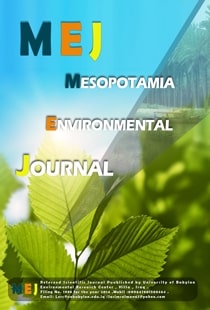Abstract
A total of 500 handling specimens of the common carp Cyprinus carpio were transported from a fish farm in Maysan Province in a special truck to Marine Sciences Center of the University of Basrah, in six plastic tanks with water volume of 500 liters per tank, with a fish density of 300 kg/m3. Three methods were used to reserve the fishes, aerators, ice and without additives (control) in duplicate for each method for four hours. Blood was collected directly from fishes, and serum was extracted to conduct cortisol, thyroid-stimulating hormone (TSH), glucose and total protein. The results indicated a significant rise in the activities of all parameters in transported fishes from those in the wild. The highest values were recorded in the control containers and the lowest were recorded in the ice containers. Survival rates were 100% in ice containers and aerated containers and 85% in control containers. The low values recorded in ice containers 0.54 µg/dl for cortisol, 0.55 uIU/ml for TSH, 3.54 Mmol.L-1 for glucose and 2.43 gm/100 ml for total protein indicated that the physiological activities of stressed fishes were at their lowest level, this is necessary to reduce the stress during fish transportation. This confirms the possibility of using ice as a stress-reducing agent when transferring handlings of common carp for short distances.
Keywords
Cortisol
glucose
ice
total protein
transport stress
TSH
